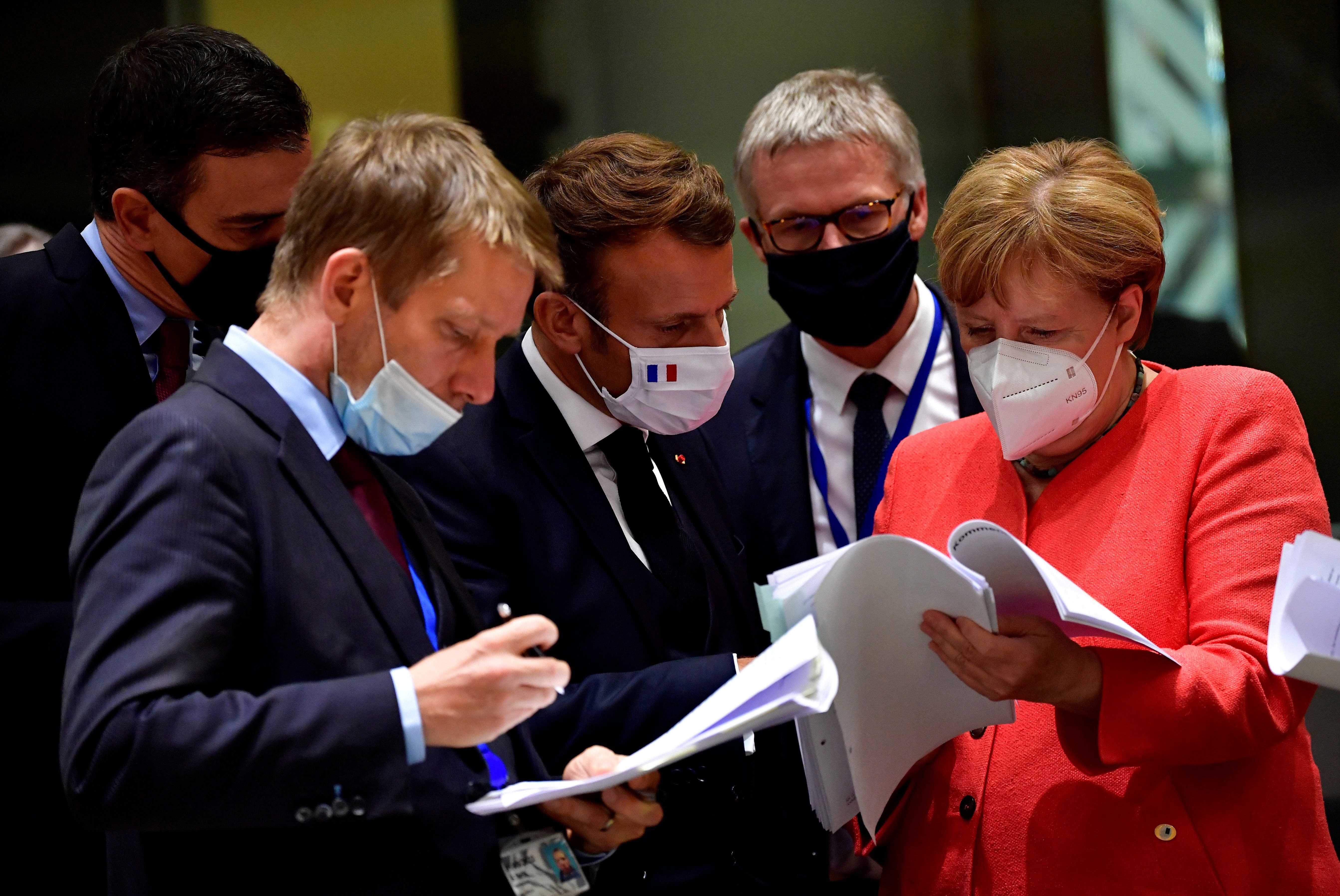European Council Adopts New Multiannual Budget and Recovery Fund

What are the main elements of the compromise?
The heads of state and government decided to reduce the MFF by a little over €25 billion (2%) compared to the European Commission (EC) proposal presented in May. The multiannual budget will be €1.074 billion. The Council also accepted the Commission’s proposal to create a recovery fund through borrowing on financial markets. The leaders opted, however, to reduce the amount of non-repayable grants from €500 billion to €390 billion. This will entail cuts to several EU policies and programmes that were to receive a top-up from the recovery fund (such as cooperation in healthcare). More money will be available as loans (€360 billion instead of the €250 billion originally planned). The fund will be used to counter the pandemic-related economic crisis while contributing towards the green and digital transitions – two key initiatives of the EC this term.
What did the proponents gain?
The coalition of Southern European states, backed by France and Germany, managed to convince the Northern European “frugals” that grants must constitute a significant part of the recovery fund, although in the end it is smaller than originally proposed. In exchange, the “frugals” won modification of the procedure for granting financial assistance. To receive it, countries must implement the climate and digital strategies and—most importantly—carry out reforms designed to improve their economic condition. Moreover, the national recovery plans, a prerequisite for getting the funds, will have to be approved not only by the Commission but also by a qualified majority in the Council. The “frugals” have not managed to persuade their counterparts to accept unanimity for this subject though. Yet, they have had their rebates increased, which will translate into smaller contributions to the community budget.
What does the agreement imply for the EU?
Reaching a compromise on the MFF and the NG in less than two months from the presentation of the Commission proposal offers a chance for quick creation of the recovery fund and for maintaining the continuity of the financing of common policies within the MFF. Germany currently holds the presidency of the EU Council and has particular reason to be satisfied, as getting a deal on the financial issues was the crucial task. The European Council decision increases the likelihood of new EU own resources being adopted. They could be financed from a new digital tax or the carbon border adjustment mechanism. Finally, in the verification process of the national recovery plans, the Member States gain clout at the expense of the EC.
What does the outcome of the negotiations mean for Poland?
Even though the part of the recovery fund allocated to grants will be reduced, it will still provide some additional money for cohesion policy and the Common Agricultural Policy—both Polish priorities. The reduction of the Just Transition Fund (from €40 billion to €17.5 billion) is a negative development for Poland, which is expected to be its largest beneficiary. In addition, before the country commits to the goal of reaching carbon neutrality by 2050, only half of its allocation will be available. Even though the Polish government opposed linking the disbursement of funds to an assessment of the rule of law, the European Council conclusions stated that if breaches that may endanger the Union’s financial interest are identified, the Commission, upon approval of a qualified majority in the Council, could “propose measures”. The details of the procedure will be negotiated.
Will the European and national parliaments accept the deal?
Even though reducing the MFF and the pool of funds for grants goes against the demands of the European Parliament, the cuts do not seem deep enough to push the majority of MEPs towards rejecting the position of the heads of state and government. Moreover, the deal reflects other requests made by the chamber: protection of the rule of law and readiness to adopt new EU own resources that would contribute to the repayment of the debt. The legal act empowering the Commission to borrow will have to be approved by national parliaments, but most likely none of them will be willing to undermine a decision taken unanimously by the governments.


